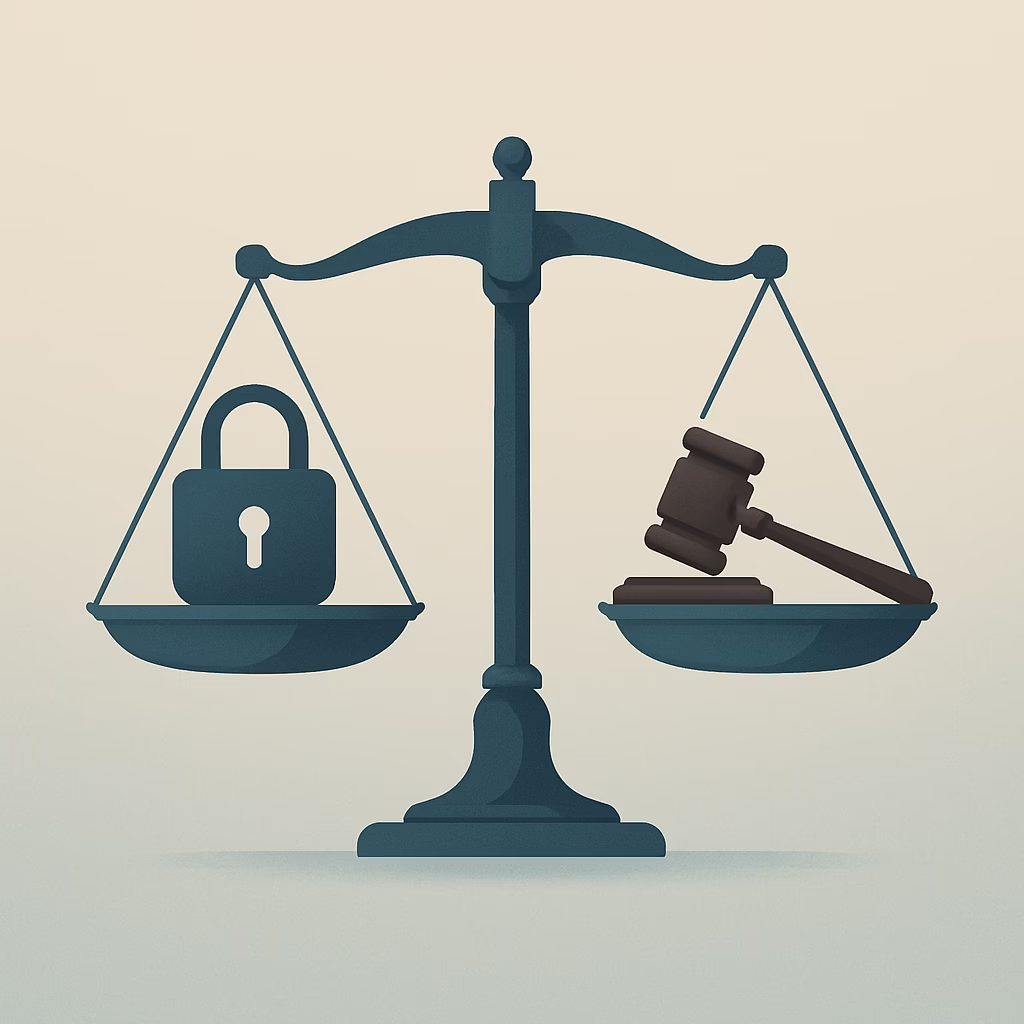When Open Justice Prevails: The Tribunal’s Landmark Ruling on Apple ADP
Imagine a courtroom bathed in natural light, its doors flung open, where even the most sensitive tech disputes are laid bare for all to see. That’s precisely what the UK’s Investigatory Powers Tribunal (IPT) has insisted upon in its recent decision concerning Apple’s Advanced Data Protection (ADP). This ruling doesn’t just settle a spat between a tech giant and the Home Office; it shakes the foundations of how we balance privacy, security and transparency in the 21st century.
The Heart of the Battle
At its core, this dispute pitted two competing imperatives against each other. On one side stood the Home Office, invoking its powers under the Investigatory Powers Act to demand secret access to individuals’ encrypted data. On the other, Apple argued passionately that creating a “backdoor” into ADP would undermine the very security it promises millions of users worldwide. With ADP withdrawn from the UK in February, the stage was set for a high-stakes clash—secret hearings versus open justice.
Why Open Justice Matters
Open justice is more than a legal principle; it’s the bedrock of public trust. The IPT’s refusal to hold parts of the hearings behind closed doors sends a clear message: even national security claims cannot override the public’s right to know. By insisting on transparency, the tribunal ensured that civil liberties groups, press organisations and ordinary citizens could scrutinise government actions. After all, secrecy breeds suspicion, whereas openness fosters accountability.
What This Means for You
You might not work in cybersecurity or national intelligence, but this ruling affects us all:
- Data Privacy: ADP and similar end-to-end encryption tools keep your personal messages, photos and documents safe from prying eyes. This case reaffirms that weakening those tools isn’t a fait accompli.
- Legal Precedent: Courts here and abroad will now look closely at the IPT’s transparency-first approach when faced with demands for secret data access.
- Civic Engagement: Media reporting and NGO interventions played a pivotal role. It’s a reminder that public scrutiny can shape outcomes in even the most technical legal battles.
Balancing Act: Security vs. Privacy
The age-old question resurfaces: can governments lawfully access encrypted data without compromising everyone’s security? This ruling doesn’t resolve that tension once and for all, but it does tip the scales towards privacy. Lawful warrants remain essential, but they must be pursued in the open—guardrails that prevent overreach and protect individuals from unchecked surveillance.
Looking Ahead
As end-to-end encryption becomes ubiquitous—from banking apps to health records—governments will continue to seek lawful access. Technology firms, for their part, face mounting pressure to design systems that answer both user privacy demands and legitimate investigative needs. The IPT’s decision will almost certainly be cited in future litigation, making it a global touchstone for debates over “no-backdoor” encryption.
If transparency is the antidote to suspicion, should all judicial proceedings—especially those involving our digital lives—be public by default? Or are there moments when secrecy is the lesser evil? As we forge ahead into an ever-more connected world, the choices we make today will determine how much of our private lives remains truly private tomorrow.



